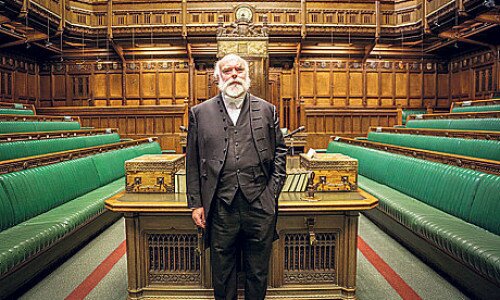
EVEL and good: Reform required, but politics can work
It rather sums up the constitutional balancing act at the heart of the Mother of Parliaments and our country’s democracy, writes Kevin Johnson.
A few parliamentary absurdities/delights (delete as appropriate) took place in the Palace itself yesterday. The House of Lords voted (yes voted) on who its latest two members should be –hereditary crossbench peers brought in under the alternative vote system, following the retirement of two of the group of 28 who can legislate by birth right.
Back in the other place, the Commons debated mitochondrial transfer with a free vote. Whilst there was criticism that there was not enough time for discussion, it was an occasion on which the nation’s chamber could be proud of mature debate over moral and ethical issues in stark contrast to the 30 minutes that follows from midday on Wednesdays.
Away from the chamber, William Hague, First Secretary of State, spelt out Conservative proposals for dealing with what his party likes to refer to as EVEL – English Votes for English Laws. Under the plan preferred by Hague and the PM, MPs in English seats would have an effective veto over laws which only affect their nation (and similarly in relation to English and Welsh laws). However, other MPs (notably the Scots, which of course include a very small number of Tories) would still take part in debates and final votes. Labour prefers an English only committee stage, as well as promoting a constitutional convention. All kinds of people, from Ukip to the SNP and no small number of backbench Conservatives, do not like the Cameron/Hague option.
What is clear, however, is that post (Scottish independence) referendum and pre-(General) election politics are at play. Clear minds (and preferably a good degree of consensus) are needed to change constitutions, rather than Downing Street wheezes as dawn breaks over the Scottish result. History shows us the consequences of fiddling at the margins and not thinking through the wider, long term implications. You don’t need to be a scholar of the West Lothian Question or the Barnett Formula to know that politics is facing a form of crisis for many reasons, but the devolution genie is out of the bottle.
EVEL is, in some ways, evil. Well, a smokescreen at least. Whatever the Conservatives do or do not get through Parliament before or after 7th May in an attempt to answer the West Lothian Question (or to minimise the impact of Labour and SNP votes in a hung parliament, take your pick), the real questions are much deeper. One of those is how to enable decisions to be made and money to be spent much closer to the people and places they affect. For me, that means giving cities and local government real power (not deals), with political structures that people can engage with and through visible, accountable politicians that lead rather than manage.
When it comes to the constitution, I am both a traditionalist and a modernist – which of course is the balance that the wonderful Rogers was endeavouring to achieve before falling on his sword. How do you keep all the ancient ways of Parliament that seem anachronistic but characteristically British and in no way harmful, but at the same time give our hard working MPs some decent wifi and create a platform for scrutinising the work of the Head of Government without the need to recreate a scene from some terrible school for posh and over privileged boys?
What Cockrell’s first film showed was that politics can work. Yes, often in mysterious and byzantine ways but nevertheless MPs on a mission like Sarah Champion can change laws. Like the Palace of Westminster itself, we need some major constitutional engineering including genuine devolution for city regions. But, let’s do it with clear heads and in good spirit – and let’s not throw all the historical good out of the proverbial bath while we are in the process.
image: Robert Rogers. BBC’s Inside the Commons continues next Tuesday on BBC2 at 9.00pm.
Similar Articles
PM: gave unlawful advice; frustrated Parliament
"Scenes." As young people would say, writes Kevin Johnson. "Unlawful." "Unequivocal." "Historical." These words are not,
WMCA: Nothing to see here…move along
As the Prime Minister prepared to address leaders ‘up North’ gathering for the Convention of
HS2: new driver needed
Is the Oakervee Review "welcome", "frustrating" or the end of the line for HS2, asks
Dawn goes Down Under
It might appear that Birmingham city council changes its chief executives more regularly than its
Who can beat the Street?
You could be forgiven for not realising we are in the foothills of the very










